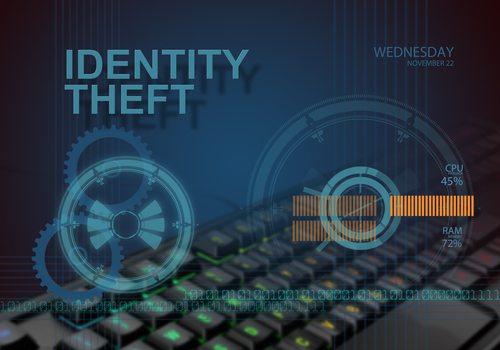The sustained popularity of social media has meant that many of us are happy to make our online identity a digital reflection of our true selves. However, by putting every aspect of our lives online – from where we holiday to what we had for lunch, even our birthdays, which are often used as a password – our identity is easier to steal than ever before.
While consumers may be willing to share information online, this attitude changes when it comes to protecting what we handover to companies. In fact, three quarters (75%) of consumers in a recent IDEX Biometrics ASA survey said they are concerned about the security of their personal information once it has been shared. Clearly, more work needs to be done to redress the balance. Consumers need to be given the right means to protect their identity without needing to censor what is shared online. In fact, 59% would feel more secure if their personal information was protected by their fingerprint for authentication instead of PINs and passwords, which may be stored in central databases and become vulnerable to cybercriminals. The time has come for consumers to stop having to use their personal information to prove who they are.
In an era of multiple authentication methods – ranging from PINs and passwords to facial recognition – it can be a challenge for consumers to know which one is the most secure and will often resort to the easiest option available. Biometric authentication with fingerprints offers the safest and most convenient solution, as fingerprints are unique – even between identical twins. They can’t be guessed or broken by a brute force attack.
The idea of collating all our data into Government ID cards has been mooted for decades, but this would be much more practical if they could be properly secured. Introducing fingerprint authentication to these ID cards or even driver’s license cards is one such way to increase security and protect our identity, both on and offline. Removing the need to use personal information that is also shared all over the internet to prove someone is who they say they are.
Securing identities, not data
According to our study, more than half of consumers believe biometric fingerprint authentication would keep their information more secure; 53% stated it is the single most convenient way of proving their identity today. In contrast, nearly two-thirds (63%) say they are most concerned about potential identity theft when they share their mother’s maiden name. With these details often openly shared online, it does not take much for criminals to build a fraudulent identity, making the security of every piece of sensitive information crucial. This data can be pieced together to form a single identity and impact our entire lives – from compromising sensitive health records to bank account details.
To allay these fears, consumers are now demanding more secure means of authentication to prove their identity. With fingerprint authentication tied to our identities, consumers can avoid having to share their personal information in the first place. For instance, instead of using the place they were born, their first pets name or their mother’s maiden name to match a pre-set response, consumers could use biometric identity authentication to securely and seamlessly prove who they physically are.
Biometric identities
With identity security of more importance to consumers than ever before, many countries are now realising the importance of fingerprint authentication in their national ID systems. In April 2018, the European Commission voted to include fingerprints on all government identity cards in the EU, noting that these enhanced biometric cards will increase security standards and make it harder for cybercriminals to steal identities across Europe. Beyond that, biometric ID cards with a fingerprint sensor can make it far easier for the cardholder to move through airport borders or use government systems, banks and healthcare.
Whether we remain in the EU or not, the UK Government needs to make progressive steps to keep identities secure and as a simple, secure and personal form of authentication, biometric fingerprint ID cards will go a long way to regaining consumer confidence in the security of their identity. As the decade draws to a close, we should expect to see biometric fingerprint authentication become more widely recognised and implemented.
The opinions expressed in this post belongs to the individual contributors and do not necessarily reflect the views of Information Security Buzz.



